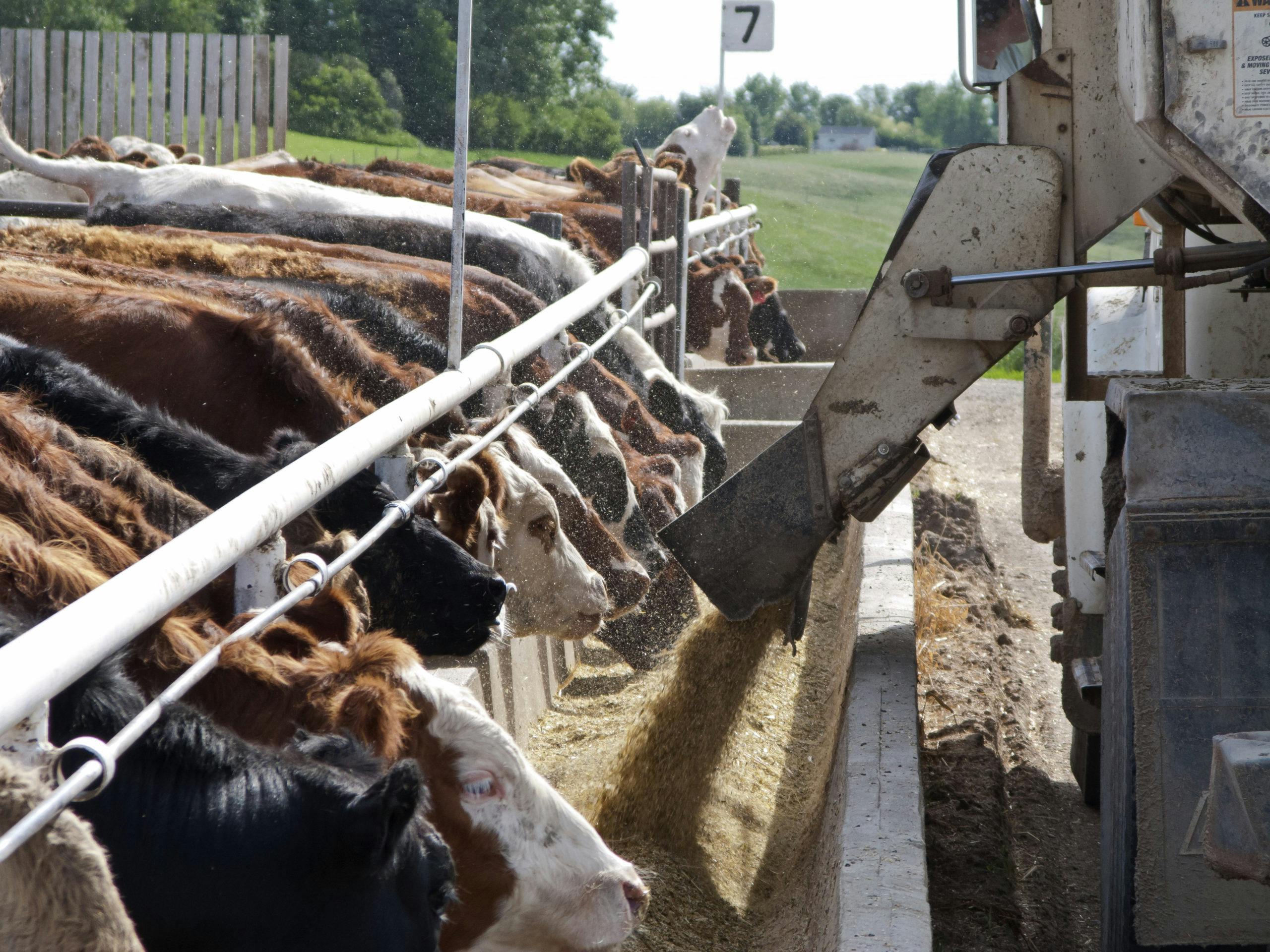One of RDAR’s producer-identified research priorities is to invest in projects that align with the concept of OneHealth, which emphasizes the interconnection between animal health, human health, and environmental health. The results from this research project will directly support producers and their veterinarians, as they will be better able to improve their cattle treatment decisions, reduce costs due to inefficient AMU, and, most importantly, reduce the potential AMR development in their herds.
“Industry led research projects ensures that provincial research dollars go to relevant and meaningful initiatives. I look forward to seeing the results from this important research project that promotes our high-quality livestock industry.”
Alberta Minister of Agriculture and Forestry, Devin Dreeshen
The project, led by the Alberta Cattle Feeders’ Association, will monitor AMU from Alberta/Canadian commercial feedlot cattle operations, and share the results with industry, feedlot producers, veterinarians, and federal/provincial governments. Putting the research into practice will not only improve herd health, but it will also open market opportunities for Alberta’s beef producers as the European market, in particular, has seen growing public concerns and EU legislation restricting production practices and antimicrobial use.
“Feedlot owners take pride in raising healthy animals, and this includes using drugs in a manner that is responsible both for the animal and the food chain. This project will help Alberta’s cattle feeders to ensure they are using the most effective methods. One of the key pillars for sustainable, safe beef production that feedlot owners adhere to is responsible drug use, as we not only want to do what’s best for the animals, but make sure we are producing food in ways that the public can trust and support.” — Greg Schmidt, Chair Alberta Cattle Feeders’ Association
Research from this project is critical for the Alberta cattle industry, which is the largest producer and net exporter of beef in Canada. More than 40% of Canada’s cattle are raised in Alberta, on our farms, on our prairie grasslands, and in our feedlots. The beef industry ships our product worldwide and maintaining our access to global markets is vital to Alberta’s economy and the livelihoods of thousands of Alberta cattle producers.
“This research will have practical value for Alberta’s feedlots, supporting sound management and increasing the competitiveness and profitability of our industry globally. It will also go a long way to assure our consumers and create confidence that beef cattle producers are not only producing high-quality beef but are doing it in a sustainable manner that places human and environmental health on a high priority.” — Clinton Dobson, RDAR Director of Research
There is a need for benchmarking current practices to demonstrate how antimicrobials are used in the feedlot industry. Veteran Southern Alberta feedlot veterinarian Dr. Joyce Van Donkersgoed will lead this research project. Driven to gather data surrounding AMU, Dr. Van Donkersgoed knows it is impossible to demonstrate appropriate AMU and reductions in AMU and AMR if there is no supporting data. This project is valuable to Alberta cattle producers because it is only through data collection and measurement that the industry can understand AMU and improve antimicrobial stewardship and herd health.
“Alberta veterinarians use solid evidence-based information when managing cattle processing and treatment protocols to ensure the continued efficacy of prescribed antimicrobials. Additional research is always invaluable in making decisions that will benefit both the animals and the producer. Research-backed data helps us to set standards like we have in the Canadian Roundtable for Sustainable Beef, which guide our industry and ensure we are producing animals in the most ethical, sustainable way possible.” — Dr. Joyce Van Donkersgoed, Research Project Lead
This research will reduce the use and dependency on antimicrobials on our farms and ranches, saving producers money and returning the monetary benefits into our producer’s pockets at the farm gate. Learnings from this research will help mitigate AMR development, strengthen food safety, and provide the drive to adopt best management practices that can be used on feedlots. Putting the research into practice will help producers make sound economic and health decisions that will improve the health and overall sustainability of Alberta beef/cattle farming operations and, most importantly, provide families with secure access to affordable, safe, and healthy food.
To learn more about this and other RDAR research projects, please view our funded research.
About RDAR
RDAR is a not-for-profit organization that will continually consult with Alberta’s crop and livestock producers to set research priorities and distribute funds. Its mandate is: to support results driven agriculture research priorities and programs that will increase the competitiveness and profitability of Alberta’s agriculture industry. Arm’s length from the provincial government, RDAR is funded by two sources: The Government of Alberta, the Government of Canada, and Alberta’s Government through the Canadian Agricultural Partnership program. rdar.ca
RDAR Media Inquiries:
Janada Hawthorne
Communications Lead
Results Driven Agriculture Research
780-903-2734
